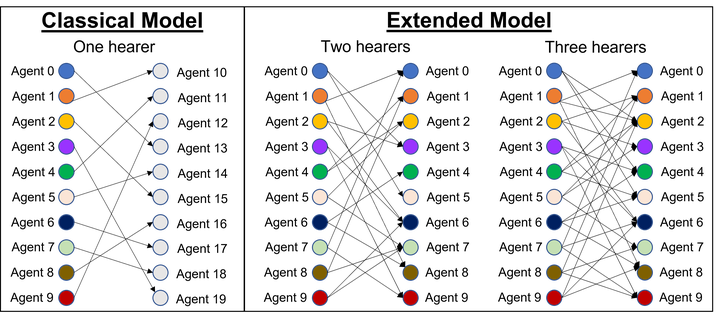Extending the Naming Game in Social Networks to Multiple Hearers per Speaker

Abstract
Social conventions govern numerous behaviors of humans engaging in day to day activities from how they greet to languages they speak. The Naming Game shows the evolution of consensus in social networks in the absence of any outside coordinating authority. The classical Naming Game algorithm has been defined with inherently sequential semantics where agents engage in pairwise interactions. In reality, people engage in parallel interactions with multiple hearers. In this paper, we extend the classic Naming Game to multiple hearers per speaker in each conversation even while allowing simultaneous speaking and hearing. We simulate the impact on the rate of convergence by varying the number of hearers and investigate the impact of different network types on the global convergence. Multiple network types and agent population sizes are used in the simulation experiments. The results show that our extended model combining simultaneous conversations and multiple hearers per speaker per conversation makes the words diffuse at a much faster rate and leads to significantly faster consensus formation.